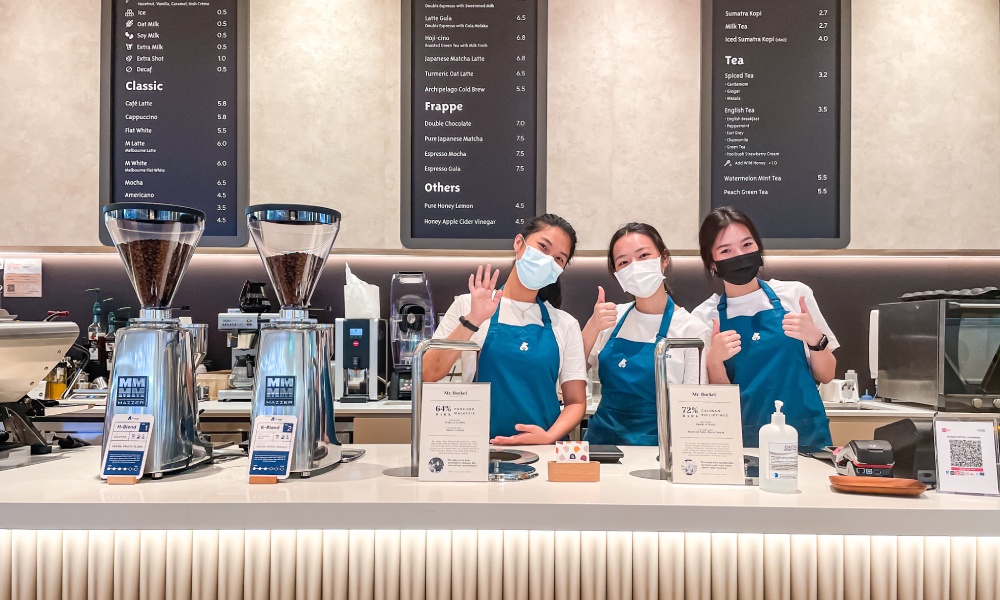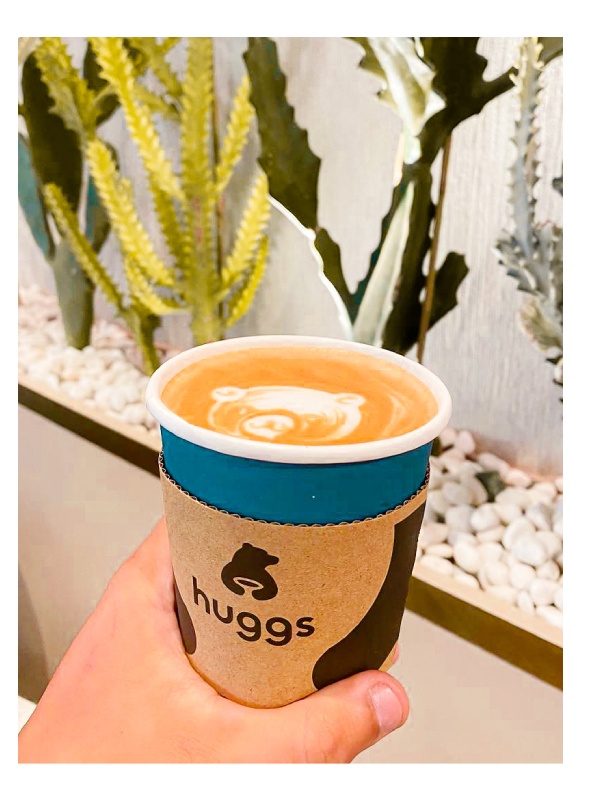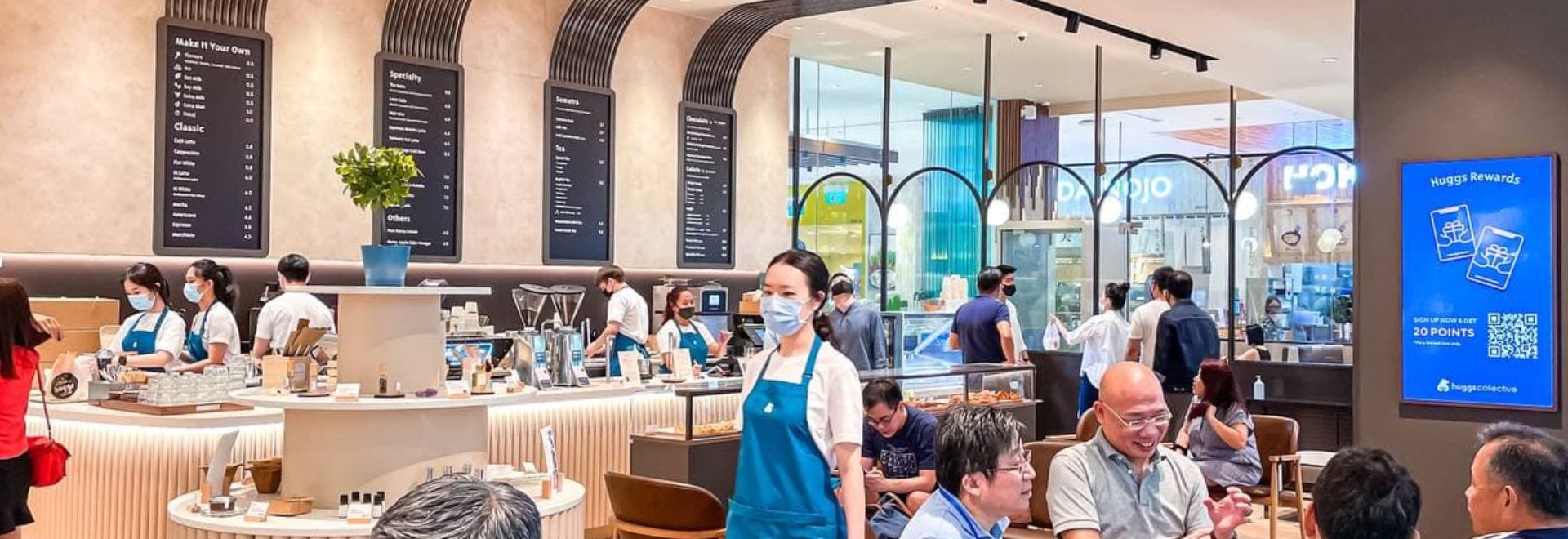How Huggs Coffee became a blueprint for success
In early 2020, Covid-19 brought Singapore’s Huggs Coffee to the brink as sales fell virtually to zero. Today, it has set its sights on international expansion. Benedict Smith speaks with Huggs’ managing director, Haoming Lee, to find out how it rode the wave.
A few months ago, a local university in Singapore got in contact with Huggs Coffee’s managing director, Haoming Lee.
The university was interested in writing a business case study on the specialty coffee shop chain under the title, “Huggs Coffee: A blueprint for success”.
Specifically, it wanted to explore how the company had gone from crisis point during the pandemic to setting its sights on global expansion.
With all its stores located in the central business district and very little online presence, its sales had dropped to virtually zero when the first lockdown hit and Huggs was on the brink of collapse.
For Haoming, who joined the company in June 2020, the university’s interest was recognition for the transformational work he and the team had done to not only keep the company afloat but to scale it over the last two years.
However, being aware of how quickly the market can change, he was also keen to point out that it could only be seen as a blueprint for that particular moment.
“Knowledge and strategy change all the time,” he explains. “I’m very flattered that Huggs is being used as a reference point – but it’s not a forever blueprint.”
This says a lot about Haoming’s approach since the beginning of his journey with Huggs. When he joined, it was a relatively simple specialty coffee shop chain with around 14 stores located across Singapore.
It catered predominantly to office workers and had next to no budget for marketing.
“If you had never worked in the business district, it’s unlikely you would have heard of Huggs in 2020,” Haoming says. “They didn’t do much marketing and even though it had been successful in those areas since 2008, the brand didn’t hold much perceived value for consumers.”
The sudden change that Covid brought, from commuting to the office to working at home, was devastating for Huggs’ bottom line. Like other businesses forced to close, it received some government grants to stop it from immediately going under – but it wasn’t a long term solution.
Haoming quickly drew up a plan and presented it to the company founder, Ron Choo, who also happened to be the father of his childhood friend. He wanted to show Ron how he could help Huggs navigate its way through the crisis.
“I realised there was so much potential for Huggs, but I also knew that consumer behaviour would change due to the pandemic – and I couldn’t see it surviving without a new strategy.
“I presented a 36-month plan, broken down in two phases of 18 months each to Ron. Soon after, I came on board as managing director to implement it.”

Early on in the transformation process, Haoming realised that Huggs’ weakness could also be its strength.
Because its market penetration beyond the business district was relatively small, it was a good opportunity to reinvent itself, while staying true to its core values of providing high-quality coffee with friendly service.
“Since operations and sales were slow, we thought, ‘Why don’t we use it as a chance to redefine ourselves?’ We took the opportunity to do a whole rebranding.”
The most significant part of the rebrand involved putting Huggs in front of more people. This was approached in two ways: digitalisation and the expansion into Singapore’s residential areas.
“Everyone’s on their cell phones or laptops all the time – they’re constantly connected,” Haoming says. “We needed to get Huggs into that network so that distance no longer became an obstacle.”
“We also knew that people didn’t know about us outside the business district. Singapore is small so you can do island-wide delivery. But we realised our product was time sensitive. You wouldn’t want to receive your coffee an hour or two later.”

To tackle this, they leveraged third-party delivery and ecommerce platforms, and set up several “satellite” locations that meant Huggs could quickly serve its coffee to consumers in different regions. These were focused, in particular, in residential areas where many people were continuing to work from home.
On top of that, the company brought roasting and baking under its domain (rather than outsourcing it) to protect itself against supply chain issues. This became part of what Haoming describes as Huggs’ “ecosystem”.
“The ecosystem was so that we weren’t too dependent on others,” he says.
That said, the company has maintained a collaborative mindset. For example, it recently teamed up with Mandai Wildlife Group, a zoo organisation, to launch some bear-themed merchandise, including cookies, picnic bags, and bluetooth speakers.
Haoming hopes that this dual strategy of being self-sufficient with some targeted collaboration will help the brand continue to grow whatever the world throws at it.
“Every other day there are new challenges,” he says. “The plan and the end product will differ so much.
“We have 21 outlets in Singapore at the moment and the goal is to grow into a global brand. But there will always be a crisis around the corner.
“It all boils down to the mentality and mindset of the company; the ability to be flexible and think out of the box. Then, the opportunities are endless.”








